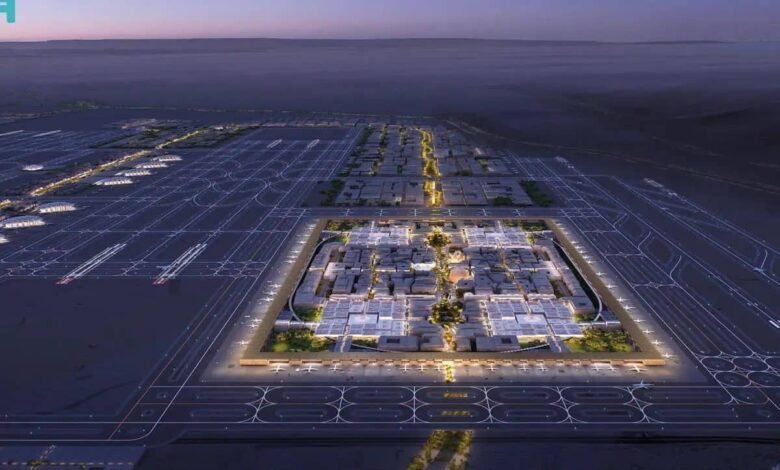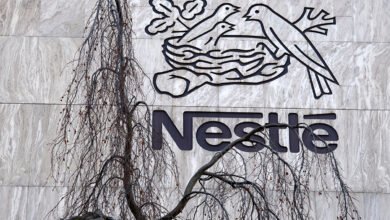
Saudi Arabia Sets New Global Aviation Hub With Mega Airports
Saudi Arabia is reshaping global air travel with major airport projects across the kingdom. The crown jewel of this initiative is King Salman International Airport in Riyadh. This massive facility will cover 57 square kilometers and will have six parallel runways, making it the world’s busiest passenger airport. The mega-project will boost yearly passenger capacity from 29 million to 120 million by 2030, and experts expect this number to reach 185 million by 2050. The airport’s design features more than 4.5 square miles of retail space and entertainment zones. These facilities are built with sustainability at their core and aim for LEED Platinum certification. This groundbreaking project is just one part of Saudi Arabia’s detailed aviation strategy. The kingdom wants to increase its connected destinations from 100 to 172, which supports its Vision 2030 economic diversification plans and prepares for major events like Riyadh Expo 2030 and FIFA World Cup 2034.
Saudi Arabia Unveils Ambitious Vision for Global Aviation Dominance
Crown Prince Mohammed bin Salman revealed a revolutionary blueprint that will transform Saudi Arabia’s aviation sector. The King Salman International Airport masterplan stands at the center of this ambitious plan. Riyadh will become a global logistics hub that connects East and West and stimulates transport, trade, and tourism activities.
Saudi Arabia’s vision goes beyond physical infrastructure to revolutionize its aviation ecosystem. The Kingdom has moved from a single national carrier model to a dual-flag carrier system. This new system features Riyadh Air and Saudi Arabian Airlines with support from Flyadeal and Flynas. These changes represent a complete restructuring of Saudi aviation infrastructure through major airport projects nationwide.
King Salman International Airport serves as the life-blood of this vision. The airport will handle 120 million travelers by 2030 and expand to accommodate 185 million passengers with 3.5 million tons of cargo by 2050. This project supports Saudi Arabia’s goal to make Riyadh one of the world’s top ten city economies and grow its population to 15-20 million by 2030.
The Saudi Aviation Strategy sets broader targets for the Kingdom’s aviation sector. The Kingdom wants to triple passenger capacity to 330 million travelers yearly across more than 250 global destinations. Cargo capacity will increase to 4.5 million tons by 2030. The strategy has already expanded Saudi airports’ connected destinations from 100 to 172.
Sustainability remains central to this aviation vision. The King Salman International Airport development will pursue LEED Platinum certification through advanced green initiatives and renewable energy adoption.
These initiatives bring substantial economic benefits. The King Salman International Airport will contribute 27 billion Saudi riyals yearly to non-oil GDP and create 103,000 direct and indirect jobs. The aviation sector contributed $53 billion to the Saudi economy in 2023. This represents 5.2% of GVA and 10% of non-oil GVA while supporting 958,000 jobs nationwide.
Major Airport Projects Transform Saudi Transportation Landscape

Saudi Arabia’s aviation capabilities are transforming through massive construction projects beyond just flagship developments. Multiple airport initiatives are in progress throughout the country. These projects want to triple the annual passenger traffic to 330 million travelers.
The new Abha International Airport shows this nationwide transformation. The 2023 project announcement revealed plans to expand terminal space from 10,500m² to about 65,000m². The completed airport will boost passenger capacity tenfold, from 1.5 million to 13 million yearly. It will handle 90,000 flights per year—triple its current capacity. The terminal’s features include 20 gates, 41 check-in counters, and 7 self-service kiosks.
Taif International Airport development is another major project. The new airport sits 21km southeast of the existing facility and will serve 2.5 million passengers yearly by 2030. The project has a runway with full-length parallel taxiway that connects to a commercial apron.
Madinah Airport, Saudi Arabia’s only fully privatized airport, is doubling its capacity from 6 to 12 million passengers yearly. Jeddah’s King Abdulaziz International Airport continues its massive expansion after completing Terminal 1.
Regional airports throughout Saudi Arabia are also getting upgrades. Projects are moving forward in Jazan, Hail, Al-Jouf, and other locations. These investments boost connections across the country’s big territory.
Privatization drives this transformation. The first stage of Saudi Arabia’s modernization plan includes four airports—Taif, Abha, Hail, and Qassim. Public-private partnerships use Build-Transfer-Operate models for 30-year concessions, which include construction periods.
This complete infrastructure development matches broader logistics improvements. The Integrated Logistics Bonded Zone in Riyadh provides access to 5 billion people in Europe, Asia, and Africa within an eight-hour flight range.
How Saudi Mega Airports Will Reshape Global Travel Patterns

Image Source: International Airport Review
Saudi Arabia sits at a sweet spot where three continents meet. This location gives the Kingdom power to reshape global air travel through its bold airport projects. The country’s position puts half of the world’s population within a five-hour flight, making smooth connections possible between markets in Europe, Asia, and Africa.
The Kingdom’s massive airport expansion shows its bigger dreams of connecting the world. King Salman International Airport will welcome 185 million passengers yearly by 2050 and handle 3.5 million tons of cargo. This is a big deal as it means that current capacity limits will be far behind, changing how people travel between continents.
The Kingdom wants to become the main connection point between East and West. Saudi officials see Riyadh becoming a bridge that links eastern and western markets. These mega airports will serve as vital stops for international travelers. This smart positioning lets Saudi Arabia play a key role in global supply chains, especially now when geopolitical issues affect these systems.
These mega airports support the Kingdom’s tourism dreams. Better air connections help reach the goal of 100 million yearly tourists by 2030, up from 27.4 million in 2023.
The growth in Saudi Arabia’s air freight will change global logistics completely. The Kingdom plans to grow its cargo fleet from seven to 27 planes by 2030. This growth will boost its role in international trade routes. The total aircraft fleet will also expand from 241 to 657 planes.
These changes will boost Saudi Arabia’s aviation sector. It should add AED 273.93 billion to the economy by 2030, up from AED 78.21 billion now. King Salman International Airport alone will generate 27 billion Saudi riyals yearly for non-oil GDP and create 103,000 jobs, both direct and indirect.
The airports focus on being green. They will use renewable energy and eco-friendly designs. This matches global moves toward environmentally responsible travel infrastructure.
Saudi Arabia is making history with its bold aviation plans. The new King Salman International Airport will connect over 250 destinations and serve 330 million passengers annually by 2030. These changes will boost the economy by 27 billion Saudi riyals each year and create more than 100,000 new jobs.
The Kingdom’s perfect location and strong infrastructure make it an ideal hub between continents. Saudi airports will connect billions of travelers from Europe, Asia, and Africa. The vision goes beyond building new facilities. It changes the entire aviation landscape with two national carriers, bigger cargo operations, and modern regional airports.
Saudi Arabia’s coordinated aviation strategy shows its growing influence in global air travel. The Kingdom continues to work toward its Vision 2030 goals of economic diversity and growth.






